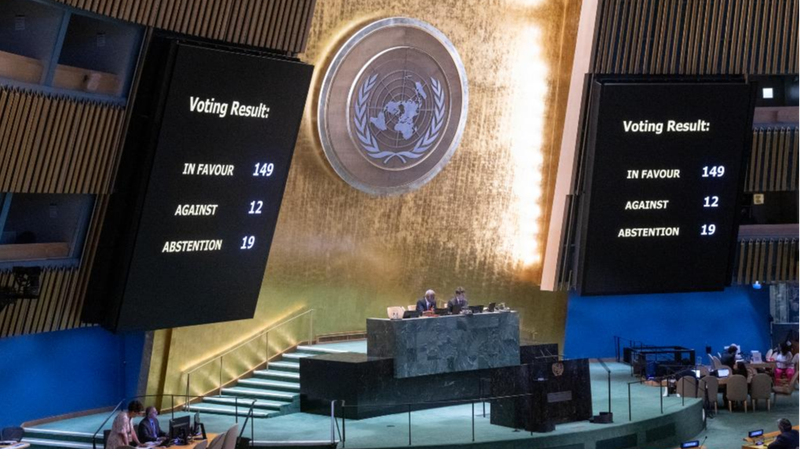In a landmark vote on Thursday, the United Nations General Assembly adopted a resolution demanding an immediate, unconditional and permanent ceasefire in Gaza. The text, approved by 149 countries with 19 abstentions, also calls for rapid, large-scale humanitarian access after the UN Security Council effort was blocked by a U.S. veto last week.
The resolution outlines clear steps:
- Immediate release of hostages and return of Palestinian detainees
- Full withdrawal of Israeli forces from Gaza
- End of the Gaza blockade and opening of all border crossings
- Unhindered delivery of humanitarian aid to all civilians
- Halt to settlement expansion and forced evictions in the West Bank and East Jerusalem
Although General Assembly resolutions are not legally binding, this vote underscores a powerful global consensus. By a near-unanimous margin, member states condemned starvation as a method of warfare and demanded that occupying powers uphold their obligations under international law.
Drafted at the request of the Arab Group and the Organization of Islamic Cooperation, this Emergency Special Session—the 10th since 1997—marks a renewed push for a two-state solution. The resolution rejects any attempts to alter the demographic or territorial status quo and calls for steps to unify Gaza with the West Bank under the Palestinian Authority.
Beyond the ceasefire, the text reaffirms the UN’s long-term responsibility to resolve the question of Palestine. It urges all UN member states to protect humanitarian and medical personnel, respect the privileges of UN agencies, and ensure accountability for actions that imperil civilians.
For young global citizens, entrepreneurs, and changemakers, this vote is a data point in an evolving narrative on global conflict resolution, human rights, and the power of multilateralism. While legal obstacles remain, the breadth of support signals a shifting landscape in international diplomacy.
Reference(s):
cgtn.com



